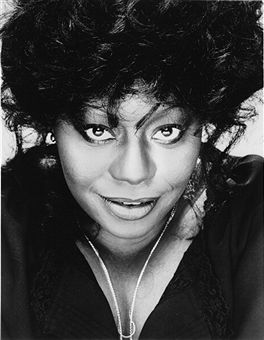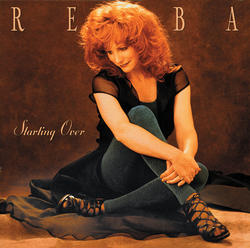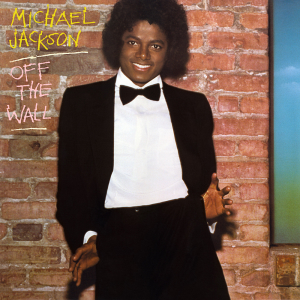
Disco is a genre of dance music and a subculture that emerged in the 1970s from the United States' urban nightlife scene. Its sound is typified by four-on-the-floor beats, syncopated basslines, string sections, brass and horns, electric piano, synthesizers, and electric rhythm guitars.

Saturday Night Fever is the soundtrack album from the 1977 film Saturday Night Fever starring John Travolta. The soundtrack was released on November 15, 1977 by RSO Records. Prior to the release of Thriller by Michael Jackson, Saturday Night Fever was the best-selling album in music history, and still ranks among the best-selling soundtrack albums worldwide, with sales figures of over 40 million copies.

KC and the Sunshine Band is an American disco and funk band that was founded in 1973 in Hialeah, Florida. Their best-known songs include the hits "Get Down Tonight", "That's the Way ", "(Shake, Shake, Shake) Shake Your Booty", "I'm Your Boogie Man", "Keep It Comin' Love","Boogie Shoes", "Please Don't Go" and "Give It Up". The band took its name from lead vocalist Harry Wayne Casey's last name ('KC') and the 'Sunshine Band' from KC's home state of Florida, the Sunshine State. The group has had six top 10 singles, five number one singles and a number two single on the Billboard Hot 100 chart.
Dance-pop is a subgenre of pop music that originated in the late 1970s to early 1980s. It is generally uptempo music intended for nightclubs with the intention of being danceable but also suitable for contemporary hit radio. Developing from a combination of dance and pop with influences of disco, post-disco and synth-pop, it is generally characterised by strong beats with easy, uncomplicated song structures which are generally more similar to pop music than the more free-form dance genre, with an emphasis on melody as well as catchy tunes. The genre, on the whole, tends to be producer-driven, despite some notable exceptions.

The Trammps are an American disco and soul band, who were based in Philadelphia and were one of the first disco bands.
John Benitez, also known as Jellybean, is an American musician, songwriter, DJ, remixer, and music producer. He has produced and remixed artists such as Madonna, Whitney Houston, Michael Jackson, and the Pointer Sisters. He was later the executive producer of Studio 54 Radio. In December 2016, Billboard magazine ranked him as the 99th most successful dance artist of all-time.

"I Want You" is a song written by songwriters Leon Ware and Arthur "T-Boy" Ross and performed by singer Marvin Gaye. It was released as a single in 1976 on his fourteenth studio album of the same name on the Tamla label. The song introduced a change in musical styles for Gaye, who before then had been recording songs with a funk edge. Songs such as this gave him a disco audience thanks to Ware, who produced the song alongside Gaye.
Patrick Pierre Hernandez is a French singer who had a worldwide hit with "Born to Be Alive" in 1979.
Dance Club Songs was a chart published weekly between 1976 and 2020 by Billboard magazine. It used club disc jockeys set lists to determine the most popular songs being played in nightclubs across the United States.
T-Connection was a funk and disco group from Nassau, the Bahamas, who scored two hits on the Billboard Hot 100 between 1977 and 1979. They did better on the US Hot Dance Music/Club Play chart, where they had five Top 10 hits, including "Do What You Wanna Do", which reached #1, and "Everything Is Cool", which peaked at #10 on the US Billboard R&B chart. In the United Kingdom, they scored five entries in the UK Singles Chart, with "Do What You Wanna Do" their highest placed success at #11.

Loleatta Holloway was an American singer known for disco songs such as "Hit and Run" and "Love Sensation". In December 2016, Billboard named her the 95th-most successful dance artist of all time. According to the Independent, Holloway is the most sampled female singer in popular music, used in house and dance tracks such as the 1989 Black Box single "Ride on Time".

"Sidewalk Talk" is a song by American record producer John "Jellybean" Benitez from his first extended play, Wotupski!?! (1984). It was released on October 21, 1984, by EMI Records as the first single from the EP. The song was written by Madonna and produced by Benitez. They had initially met in 1983 and Benitez worked as a producer on Madonna's self-titled debut album. When he started work on his debut EP, Wotupski!?!, Madonna wrote "Sidewalk Talk" for him. The song features bass and electric guitars, synthesizers, piano, and drums. Lead vocals are by Catherine Buchanan with additional chorus vocals by Madonna.
"If I Can't Have You" is a disco song written by the Bee Gees in 1977. The song initially appeared on the Saturday Night Fever soundtrack in a version by Yvonne Elliman, released in November 1977. The Bee Gees' own version appeared a month later as the B-side of "Stayin' Alive".

"What a Fool Believes" is a song written by Michael McDonald and Kenny Loggins. The best-known version was recorded by the Doobie Brothers for their 1978 album Minute by Minute. Debuting at number 73 on January 20, 1979, the single reached number one on the Billboard Hot 100 on April 14, 1979, for one week. The song received Grammy Awards in 1980 for both Song of the Year and Record of the Year.

Starting Over is the twentieth studio album by American country music artist Reba McEntire on October 3, 1995. It was a tribute to her roots and influences, featuring cover versions of songs by artists whom she admired growing up. Among the artists being covered were Dolly Parton, Donna Summer, Linda Ronstadt, The Supremes, Lee Greenwood and Patti LaBelle.
Post-disco is a term to describe an aftermath in popular music history circa 1979–1986, imprecisely beginning with an unprecedented backlash against disco music in the United States, leading to civil unrest and a riot in Chicago known as the Disco Demolition Night on July 12, 1979, and indistinctly ending with the mainstream appearance of new wave in 1980. During its dying stage, disco displayed an increasingly electronic character that soon served as a stepping stone to new wave, old-school hip hop, Euro disco, and was succeeded by an underground club music called hi-NRG, which was its direct continuation.

"You Make Me Feel (Mighty Real)" is a 1978 song by American disco/R&B singer Sylvester. It was written by James Wirrick and Sylvester, and released by Fantasy Records as the second single from the singer's fourth album, Step II (1978). The song was already a largely popular dance club hit in late 1978, as the B-side of his previous single "Dance (Disco Heat)", before it was officially being released in December. It rose to the number one position on the US Billboard Dance Club Songs chart. Music critic Robert Christgau has said the song is "one of those surges of sustained, stylized energy that is disco's great gift to pop music".

Off the Wall is the fifth studio album by the American singer Michael Jackson, released on August 10, 1979, by Epic Records. It was Jackson's first album released through Epic Records, and the first produced by Quincy Jones, whom he met while working on the 1978 film The Wiz. Several critics observed that Off the Wall was crafted from disco, pop, funk, R&B, soft rock and Broadway ballads. Its lyrical themes include escapism, liberation, loneliness, hedonism and romance. The album features songwriting contributions from Stevie Wonder, Paul McCartney, Rod Temperton, Tom Bahler, and David Foster, alongside three tracks penned by Jackson himself.
Celi Bee is an American disco musician.
"Impressive Instant" is a song by American singer-songwriter Madonna from her 2000 studio album Music. Originally intended to be the fourth single of the album, the release was cancelled due to a disagreement between Madonna and her recording company. Finally Warner Bros. released it in the United States as a promotional single on September 18, 2001. Written and produced by Madonna and Mirwais Ahmadzaï, the track is bright and uplifting in its content and composition. It was the first song that Madonna and Ahmadzaï worked on and recorded. Ahmadzaï had to work separately on his laptop to generate the sound elements which Madonna wanted in the song, since it was difficult to generate the music in the recording studio. "Impressive Instant" has been described as a club-savvy acid techno, pop-trance, electropop and electro house stomper containing futuristic keyboard lines, with Madonna's vocals being distorted and robotic. Backed by laser noises and synths, the song's lyrics deal with love at first sight, and contains somewhat absurd, nonsensical lyrics.









